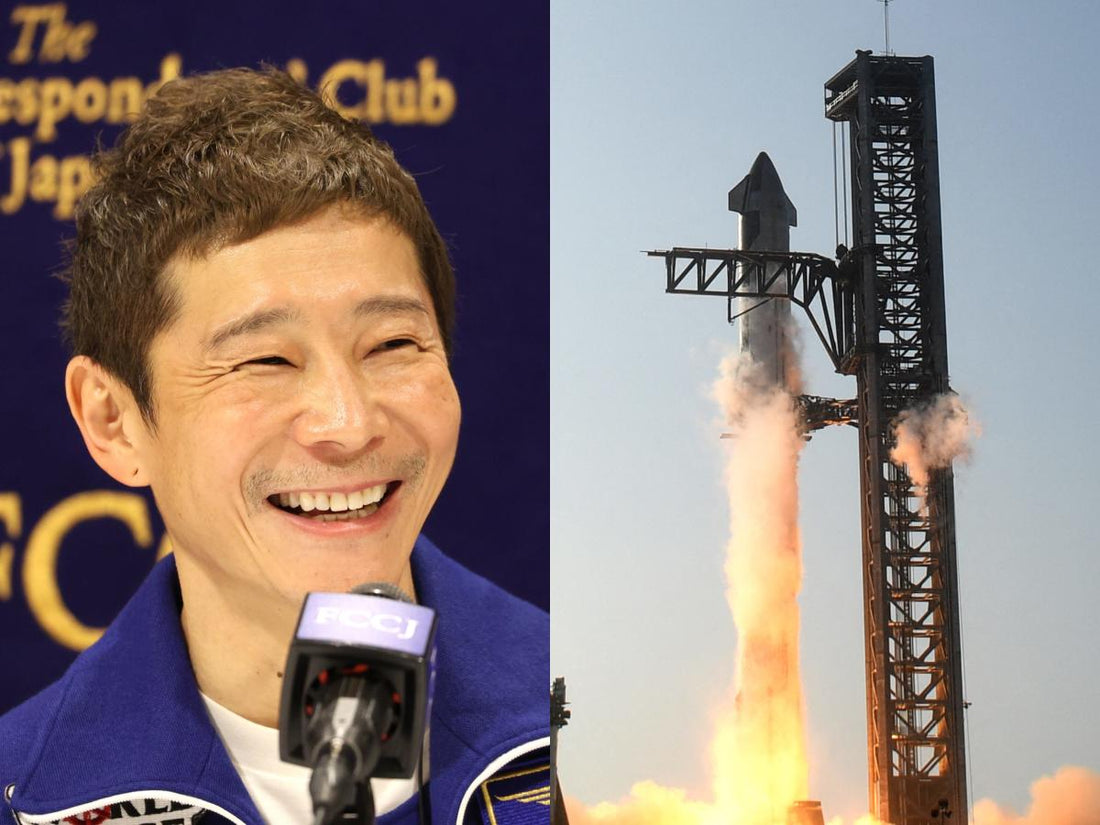
"Devastating", Japanese billionaire cancels private SpaceX moon mission
Share
In a move that sent shockwaves through the space tourism industry, Japanese billionaire Yusaku Maezawa has pulled the plug on his ambitious dearMoon project – a private lunar expedition aboard SpaceX's Starship rocket. Announced with much fanfare in 2018, the mission promised a historic trip for a crew of eight artists, fostering creative expression inspired by the lunar experience. However, delays with Starship's development and uncertainties surrounding the launch date have ultimately grounded the project.
The news, announced on the dearMoon website on June 3rd, 2024, cited SpaceX's failure to achieve the originally planned 2023 launch window. "Launch within 2023 became unfeasible," the statement read, "and without clear schedule certainty in the near-term, it is with a heavy heart that Maezawa made the unavoidable decision to cancel the project."
Maezawa, a self-proclaimed space enthusiast, echoed the sentiment on social media, expressing his regret over the cancelled mission. While acknowledging the developmental nature of Starship, he emphasized the frustration caused by the lack of a clear timeline. "It's still uncertain as to when Starship can launch," he wrote, highlighting the crucial factor that ultimately led to the project's demise.
The initial dearMoon announcement in 2018 garnered significant media attention. Maezawa planned to personally finance the trip, selecting a crew of eight individuals from the creative world. The list included acclaimed artists like DJ Steve Aoki, K-pop star T.O.P, and YouTuber Tim Dodd. Briefly, Maezawa even attempted a reality show-style selection process for a potential "life partner" to accompany him, but the idea was abandoned shortly after.
The assembled crew, however, were left devastated by the cancellation. Public social media posts revealed their disappointment, with some even expressing resentment towards Maezawa's decision. Photographer Rhiannon Adam, a crew member, questioned the lack of communication, stating, "You didn't ask us if we minded waiting or give us an option or discuss that you were thinking of cancelling until you'd already made the decision."
Regarding the dearMoon project cancellation.
— Yusaku Maezawa (MZ) (@yousuckMZ) June 1, 2024
I signed the contract in 2018 based on the assumption that dearMoon would launch by the end of 2023.
It’s a developmental project so it is what it is, but it is still uncertain as to when Starship can launch.
Filmmaker Brendan Hall echoed this sentiment, emphasizing the crew's commitment and readiness to wait. "Our crew … were ready to wait as long as it took for this flight to happen," he wrote. Their perspective highlighted the emotional investment the crew had made, dedicating years to anticipating this once-in-a-lifetime opportunity.
Dodd, while acknowledging his disappointment, offered a more nuanced perspective. "We had no prior knowledge of this possibility," he stated, referring to the potential cancellation. He admitted a degree of "guilt about being upset about a gift that was retracted," recognizing the inherent privilege of being selected for the mission. However, the cancellation undoubtedly represented a significant loss, one that had become deeply intertwined with his personal aspirations.
The news comes amidst ongoing challenges with Starship's development. The ambitious, fully-reusable launch vehicle is designed to revolutionize space travel, eventually facilitating deep space exploration and even Mars colonization, as envisioned by SpaceX CEO Elon Musk. However, the path to achieving this vision has been fraught with difficulties.
Starship's first two test flights in April and November 2023 ended in fiery explosions, raising serious concerns about its stability. While the third attempt in March 2024 achieved a significant milestone – reaching orbital velocity – it too ended prematurely with the loss of communication before the planned landing.
These setbacks highlight the inherent dangers and complexities of spaceflight. Starship represents a technological leap forward, pushing the boundaries of rocket design. But such progress often comes at a cost, and ensuring the safety of human passengers is paramount.
Maezawa's cancelled mission serves as a stark reminder of the challenges facing space tourism. While companies like SpaceX and Virgin Galactic are vying for a foothold in this burgeoning industry, technological hurdles and safety concerns remain significant roadblocks.
Despite the disappointment, the dearMoon project has undeniably fuelled public fascination with space travel. The prospect of private individuals venturing beyond Earth's atmosphere – and even to the moon – captures the imagination and inspires dreams of a more accessible future in space.
While Maezawa's lunar odyssey may be on hold, his project has undoubtedly contributed to the growing conversation about space exploration. The journey to make space tourism a reality continues, albeit with a slight detour. Starship's development holds the key to unlocking the future of space travel, and its success will be instrumental in determining when such ambitious private missions can finally take flight.
You’ve come this far…
Why not venture a little further into A.S.S. - our exclusive Australian Space Society.
And keep thrusting Australia into the deep unknown…
#Space_Aus




